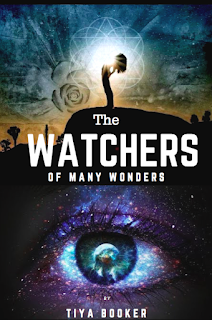The Function of Christianity in African History
European colonial expeditions in Africa in
some instances led to spiritual freedom through Christianity, but bondage in
political and economic endeavors. Jomo Kenyatta echoed that sentiment by
asserting “When the Missionaries arrived, the Africans had the land and the
Missionaries had the Bible. They taught us how to pray with our eyes closed.
When we opened them, they had the land and we had the Bible.” In this
quotation, Kenyatta captured the African feeling of ironic astonishment at the
swiftness in transition between the acceptance of a new religion into Africa and
the stolen African lands by colonial governments. There was a give and take
dichotomy that the Africans did not realize they bargained for regarding the
gaining of a new religion at the cost of loosing their indigenous land. Chinua
Achebe’s Things Fall Apart vividly illustrated
the swift and seemingly sudden annexation of West African territories from the
introduction of Christianity to the solidification of British control. In Weep Not Child, Ngũgĩ wa Thiong'o
instead focuses on the effects that Christianity had in Kenya. Early Christian
missionary work in Africa served as the foundation to bring colonial
governments into Africa that seized African land, but Christianity also served
as a source of hope to Africans.
Like
Jomo Kenyatta’s quotation suggests, the Christian missionaries were among the
very first Europeans to be accepted in West Africa which created a foothold to
establish British control. Things Fall
Apart recounted that the sole “white” man who was riding an “iron horse”
and trying to communicate to those who dwelled in Abame without the help of a
translator was rejected and killed.[1] The man’s
misfortune fell upon him, because he intimated the villagers and their elders
whose Oracle warned them against his race.[2] Missionaries
like Mr. Brown, however, came to Mbanta to spread the gospel of Christianity
with the aide of Christian Igbo men who interpreted to the crowds.[3] At first
the missionaries were regarded has harmless madmen so the elders and the people
permitted them to stay.[4] This
example from Achebe supports the idea that it was easier for the British to
influence and gain the least resistance from Africans by sending missionaries
to be accepted first. Like the events in Things
Fall Apart suggest, when Christianity gains indigenous converts the
traditional African society becomes divided thereby reducing the chances and
effectiveness of resistance against European colonization.
While Christianity created an easier way for Europeans to
gain control of African territories, it also became a sustaining hope for many
Africans. Njoroge, in Weep Not Child, found
hope for the future not only from his ambition for “ sound education,” but also
from a “belief in a God of love and mercy” which was the God of the Bible.[5] Once he lost his faith he did not have the
hope to believe in the power of education or any motivation to live, so he
attempted to hang himself.[6] Njoroge’s
example showed how powerful faith in Christianity was to many Africans. It also
showed that if they lost their hope in their religion, it could drive them to despair
in bleak situations. Njoroge was not the only one who clung to the hope of
Christianity. He mentioned that the church in Gikuyu was “where everyone went
these troubled days.”[7]
That comment demonstrated that the hope found in the Christian faith was what
comforted a whole African community from the fear of the Mau Mau and police. Thiong'o
recounted that almost all of Black Kenya at one point put their hope in Jomo
Kenyatta whom they called the “black Moses.”[8] Kenyans
incorporated the biblical story of Moses freeing the enslaved Hebrews by the
power of YHWH with their own freedom struggle against the “white Pharaoh.”[9] Thereby,
many Kenyans intertwined their hope for economic and political freedom with their
faith in the Bible which strengthened both their secular and spiritual hopes.
Because
of Colonialism, Africans lost a lot of land all throughout Africa which was the
main means to gain prosperity. The principle tool that Europeans used to colonialize
Africa quickly, most effectively, and with the least amount of resistance was converting
indigenous Africans to Christianity. It worked. Achebe recounted the
rapid-paced beginnings of European occupation. Ngũgĩ wa Thiong'o depicted the
Kenyan’s perception of Christianity after colonialism and the Christian
religion was firmly established in Kenya. For Africans, the unintended
consequence for accepting or tolerating Christianity was foreign domination of
their ancestral land. However, another consequence of Christianity in Africa
was that it gave the spiritual encouragement of hope. Thus, the function of
Christianity in African history has an element of irony.


Comments
Post a Comment